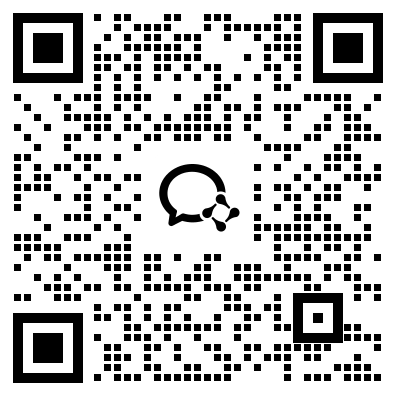英美文学选读学习笔记 William Blake
《自考视频课程》名师讲解,轻松易懂,助您轻松上岸!低至199元/科!
William Blake (1757-1827) was born and brought up in London. His father, an Irishman, carried on a small hosiery business. Showing a cocious talent for painting as a child, Blake was sent to a drawing school; then at the age of 14 he was apnticed to James Basire, an engraver. After his 7-year term was over, he studied briefly at the Royal Academy of Arts. In 1779, he began to earn his living as an engraver, receiving commissions from publishers both for book illustrations and for engravings from pictures. At the age of 24, Blake married Catherine Boucher. The marriage proved to be a lifelong happiness though there were difficulties for a time. Through all his life, Blake had been both a poet and an engraver. And he also printed a few books of his own. He lived a life of seclusion and poverty. He was often misunderstood by other people, who would regard him as gifted but mad. Blake's last years found him chiefly concerned with painting and engraving. And he gradually gathered around him a small group of devoted young admirers. However, Blake's genius in poetry remained unknown in his lifetime; he was recognized only posthumously.
Blake never tried to fit into the world; he was a rebel innocently and completely all his life. He was politically of the permanent left and mixed a good deal with the radicals like Thomas Paine and William Godwin. Like Shelley, Blake strongly criticized the capitalists' cruel exploitation, saying that the "dark satanic mills left men unemployed, killed children and forced prostitution." Meanwhile he cherished great expectations and enthusiasm for the French Revolution, and regarded it as a necessary stage leading to the millennium dicted by the biblical prophets. Literarily Blake was the first important Romantic poet, showing a contempt for the rule of reason, opposing the classical tradition of the 18th century, and treasuring the inspanidual's imagination.
Blake began writing poetry at the age of 12, and his first printed work, Poetical Sketches (1783), is a collection of youthful verse. Joy, laughter, love and harmony are the vailing notes. And new elements of poetry derived from the earlier traditions can also be found, which hint at his later innovative style and themes. As with all his poetry, this volume reached few contemporary readers.
The Songs of Innocence (1809) is a lovely volume of poems, senting a happy and innocent world, though not without its evils and sufferings. For instance, "Holy Thursday" with its vision of charity children lit "with a radiance all their own" reminds us terribly of a world of loss and institutional cruelty. The wretched child described in "The Chimney Sweeper," orphaned, exploited, yet touched by visionary rapture, evokes unbeatable poignancy when he finally puts his trust in the order of the universe as he knows it. In this volume, Blake, with his eager quest for new poetic forms and techniques, broke completely with the traditions of the 18th century. He experimented in meter and rhyme and introduced bold metrical innovations which could not be found in the poetry of his contemporaries.
His Songs of Experience (1794) paints a different world, a world of misery, poverty, disease, war and ression with a melancholy tone. The benighted England becomes the world of the dark wood and of the weeping prophet. The orphans of "Holy Thursday“ are now "fed with cold and usurous hand." The little chimneysweeper sings "notes of woe" while his parents go to church and praise "God & his Priest & King"-- the very instruments of their ression. In "London," the city is no longer a paradise, but becomes the seat of poverty and despair, of man alienated from his true self. A number of poems from the Songs of Innocence also find a counterpart in the Songs of Experience. For instance, the "Infant Joy" is matched with the "Infant Sorrow;" and the pure "Lamb" is paired with the flaming "Tyger." The two books hold the similar subject-matter, but the tone, emphasis and conclusion differ. Childhood is central to Blake's concern in the Songs of Innocence and Songs of Experience, and this concern gives the two books a strong social and historical reference. The laboring poor in London furnishes him with a sharp awareness of the economic exploitation of children, and particularly the practice of selling young children into apnticeships, a practice which provides the context for the opening lines of the "Chimney Sweeper." The two “Chimney Sweeper” poems are good examples to reveal the relation between an economic circumstance, i.e. the exploitation of child labor, and an ideological circumstance, i.e. the role played by religion in making people compliant to exploitation. The poem from the Songs of Innocence indicates the conditions which make religion a consolation, a prospect of "illusory happiness;" the poem from the Songs of Experience reveals the true nature of religion which helps bring misery to the poor children.
Blake's Marriage of Heaven and Hell (1790) marks his entry into maturity. The poem was composed during the climax of the French Revolution and it plays the double role both as a satire and a revolutionary prophecy. In this poem, Blake explores the relation ship of the contraries. Attraction and repulsion, reason and energy, love and hate, are necessary to human existence. Life is a continual conflict of give-and-take, a pairing of opposites, of good and evil, of innocence and experience, of body and soul. "Without contraries," Blake states, "there is no progression." The "marriage," to Blake, means the reconciliation of the contraries, not the subordination of the one to the other.
In his later period, Blake wrote quite a few prophetic books, which reveal him as the prophet of universal political and spiritual freedom and show the poet himself as the spokesman of revolt. The major ones are: The Book of Urizen (1794), The Book of Los (1795), The Four Zoas (1796-1807) and Milton (1804-1820).
Blake who lived in the blaze of revelation felt bound to declare that "I know that This World is a World of IMAGINATION & Vision," and that "The Nature of my work is visionary or imaginative." From childhood, Blake had a strongly visual mind; whatever he imagined, he also saw. For instance, he claimed that he saw a tree full of angels, visioned the ancient kings in Westminster Abbey, and drew "spiritual portraits" of the mighty dead. He believed he saw what Milton saw and all other people could see through the efforts of painting and poetry. As an imaginative poet, he sents his view in visual images instead of abstract terms.
Blake writes his poems in plain and direct language. His poems often carry the lyric beauty with immense comssion of meaning. He distrusts the abstractness and tends to embody his views with visual images. Symbolism in wide range is also a distinctive feature of his poetry.
本文标签:福建自考 串讲笔记 英美文学选读学习笔记 William Blake
转载请注明:文章转载自(http://www.fujianzikao.com)
⊙小编提示:扫描下方二维码,加入【福建自考微信交流群】,即可了解2024年福建自考政策资讯、考试提醒、自考解答、资料分享、备考指导等,并与千万自考生互相交流学习、共同上岸!

(加入“福建自考交流群”,与千万考生互相交流学习,共同进步!)
填写下方信息,立即领取福建自考《备考方案》!
《福建自考网》免责声明:
1、由于各方面情况的调整与变化,本网提供的考试信息仅供参考,考试信息以省考试院及院校官方发布的信息为准。
2、本网信息来源为其他媒体的稿件转载,免费转载出于非商业性学习目的,版权归原作者所有,如有内容与版权问题等请与本站联系。联系邮箱:812379481@qq.com。



 ×
×














